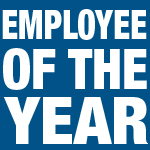 When an athlete crosses the finish line and wins a place to compete in the Olympics, their training is far from over. Even after an athlete wins a medal at the Olympics they will likely continue training for their next competition. Their goal is to keep getting better, because if they’re not careful, the next time around, they may not qualify. Though we may not be competing for a gold medal in Sochi, we all have room to improve our careers.
When an athlete crosses the finish line and wins a place to compete in the Olympics, their training is far from over. Even after an athlete wins a medal at the Olympics they will likely continue training for their next competition. Their goal is to keep getting better, because if they’re not careful, the next time around, they may not qualify. Though we may not be competing for a gold medal in Sochi, we all have room to improve our careers.
Refine Your Skills
Just like athletes train and stay in shape, we need to keep ourselves in check. If you’ve lost your edge in your industry, you can get help by going to training classes. If you aren’t well versed in the computer software or technology you’re using, dive deeper and learn more about it. Wherever you are in your career, it’s important to keep your skills sharp and grow as an employee or job seeker.
Keep Up with Changes
On a trip to Colorado, I got the chance to watch an Olympic qualifying event. I witnessed some of the best snowboarders from across America contend for a chance to compete at the winter Olympics in Sochi. Just like those incredible athletes performed at a higher level, to qualify for the Olympics, it’s important for people to stay on top of their game in their industry. These athletes use every resource and advancement they can to excel in their trade. In your career, know what tools can help you do your job faster and better, and know how to use them. Another factor is to keep yourself aware of legislative and technology changes that may impact your industry. Staying up-to-date is vitally important in the workforce and will help you improve in your career and job search.
Make Every Day Count
Falling behind and getting off track in your job can have negative results; that’s why making every day count is so important. What do you think would happen if an athlete took a break and decided to stop training? They would fall behind and fail to reach their medal goal. To rise above mediocrity and get on the right track, have a willingness to take initiative. This will show your employer that you’re a hard worker and have promotion potential. Remember: make every day count.
Have a Support Network
Many Olympic hopefuls have trainers because they too need support, motivation, and continual encouragement. So surround yourself with people who are professional, positive, motivating, and encouraging. Being around positive people can lift your spirits and help you be more productive. To help you develop your career, look for a mentor who has expertise in your industry. Just like a trainer, a mentor can provide help, encouragement, and advice.
What do you do build a gold medal career? Share with us in the comments section below!





